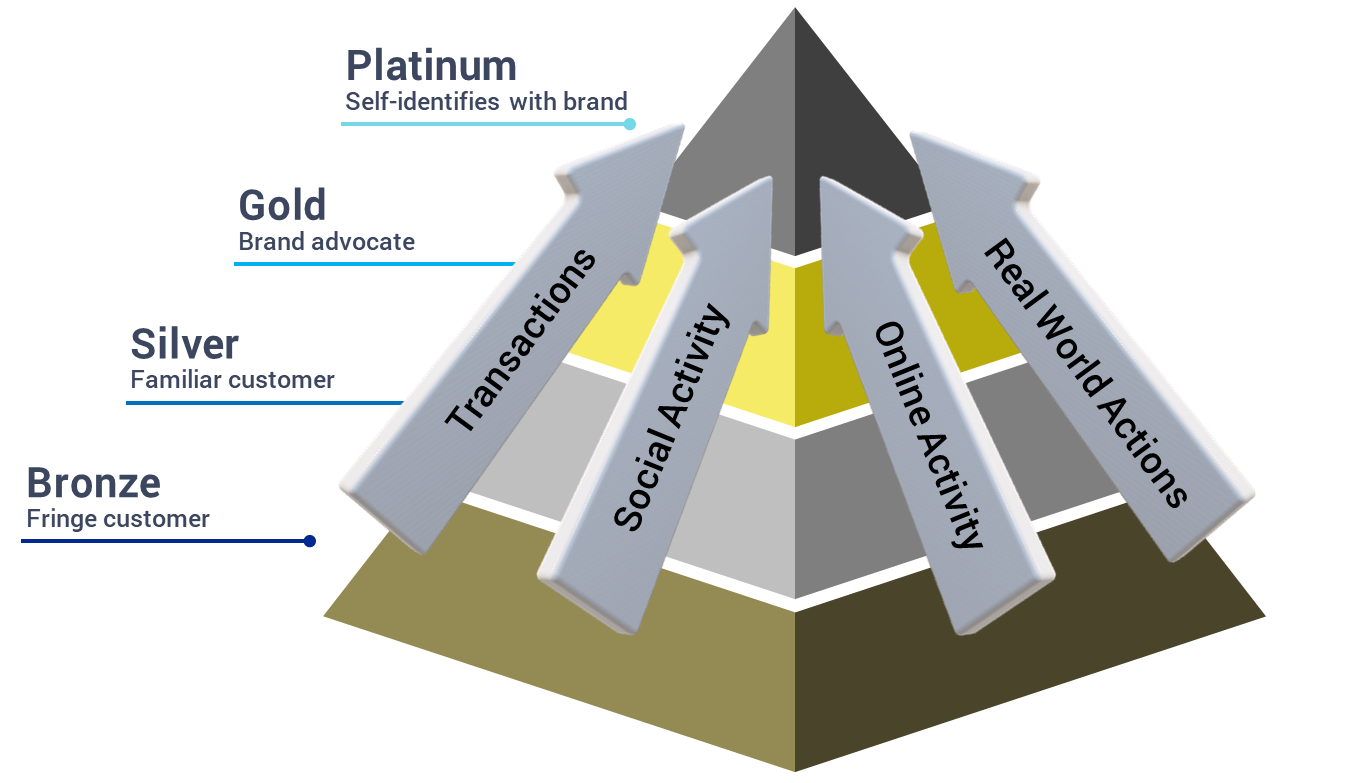Loyalty Lost: Why Traditional Programs No Longer Work
jodithepug
Posted on February 29, 2024 - 0 Comments

by Steve Bocska
Loyalty initiatives have been a cornerstone of commerce, acting as vital links between businesses and their customers. These programs are a company’s way of expressing gratitude for customer loyalty, promising exclusive benefits in return for continued patronage. Yet, as with any enduring entity, these programs aren’t immune to the wear and tear of time, leading some to question their efficacy in a modern world of evolving customer expectations.
With numerous companies offering similar, often indistinct loyalty benefits, the core purpose of these programs is at risk. For example, if Hotel Chain A and Hotel Chain B both offer a complimentary stay after ten bookings, the deciding factor for consumers may default to something as trivial as cost or convenience, undermining true brand allegiance. A recent study by Accenture revealed a sobering reality: 77% of loyalty program members were dropping out within the first year, signaling a chronic failure to engage. To deal with this, brands need to pivot towards innovation, investing more time and money in creating unique, tailored experiences for their customers. At its most basic, this might include exclusive events, collaborative efforts with other brands to expand the scope of benefits, or rewards that align with consumer lifestyles and preferences.
Take the top-rated American Express Centurion “Black” Card. Colloquially known as the “Black Card,” it epitomizes exclusivity and luxury in the realm of credit cards. Reserved for a select few individuals by invitation only, the Centurion Card offers an array of unparalleled benefits that cater to the lifestyle of high-net-worth individuals. From elite travel perks such as access to VIP airport lounges worldwide, complimentary elite status with premier hotel and car rental programs, to personalized concierge services for travel arrangements, cardholders experience a level of service and convenience that is second to none. Moreover, the Centurion Card grants access to exclusive events and experiences, ranging from high-profile fashion shows to elite sporting events, ensuring that members enjoy privileged access to the world’s most sought-after happenings. With a dedicated relationship manager to assist with personalized services and flexible redemption options for rewards points, including travel, merchandise, and statement credits, the Centurion Card offers extremely appealing flexibility and convenience.
Despite a hefty $10,000 initiation fee and $5,000 annual fee, the card’s extensive suite of benefits, high credit limit, and global acceptance make it an indispensable tool for those who seek the pinnacle of luxury and prestige in their financial endeavors. In essence, the American Express Centurion Card stands as a symbol of affluence and sophistication, catering to the discerning tastes and extravagant lifestyles of its elite clientele, allowing it to rise above the typical points system to one exuding a more exclusive, prestigious, and enriching journey with the customer.
But as brands attempt to outdo each other, a looming risk remains: overcomplexity. A loyalty program that feels like deciphering an arcane code is likely to deter engagement. Such convolution isn’t just a barrier for customers, it can manifest a financial quagmire for businesses, escalating operational costs due to errors or customer service overheads. Many lessons were learned through J.C. Penney’s catastrophic program overhaul in 2012, in which simplifying their discounts paradoxically befuddled customers used to the brand’s traditional discount model, leading to a 25% drop in sales. A simple punch card used at the cash register of a local coffee shop can engenders greater loyalty than a convoluted points system.
In our data-rich world, personalization is no longer a luxury but a necessity. A McKinsey report found brands that prioritized personalization reduced acquisition costs by up to 50% while lifting revenues by 5-15%. A loyalty program that dispenses generic rewards is akin to a maestro playing off-key. Effective personalization might mean acknowledging birthdays, tailoring offers based on buying behavior, or even customizing in-store experiences. A comprehensive approach goes beyond mere transactions, sculpting a multifaceted, resonant brand experience. Brands that foster such bonds secure not just a loyal customer base but brand evangelists. This emotional alchemy not only cultivates steadfast loyalty but transforms patrons into passionate brand promoters, amplifying the brand’s presence organically. As businesses evolve their loyalty programs in these directions, they won’t just retain customers; they’ll earn their hearts.
Keep Reading...

World of PUG Blog April 3, 2024
PUG Announces Launch of AI-Driven Intelligent Rewards System (IRS)
by Steve BocskaPress ReleaseFOR IMMEDIATE RELEASEPUG Interactive Launches Intelligent Rewards

World of PUG Blog April 3, 2024
PUG Interactive Unveils InsightPulse: A Revolutionary Predictive AI Analytics Dashboard
by Steve BocskaPress ReleaseFOR IMMEDIATE RELEASEPUG Interactive Unveils InsightPulse: A

World of PUG Blog March 21, 2024
Building Bonds: The Future of Family-Focused Loyalty Programs
by Steve BocskaThe children's toy industry, home to iconic brands


